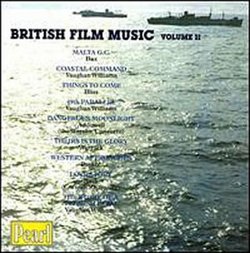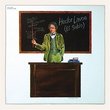| All Artists: Arthur Bliss, Ralph Vaughan Williams, Arnold Bax, Richard Addinsell, Guy Warrack, Clifton Parker, Hubert Bath, Muir Mathieson, London Symphony Orchestra, BBC Symphony Orchestra, BBC Northern Symphony Orchestra, Louis Kentner, Harriet Cohen Title: British Film Music, Vol. 2 Members Wishing: 0 Total Copies: 0 Label: Pearl Release Date: 8/22/2000 Album Type: Soundtrack Genre: Soundtracks Style: Number of Discs: 1 SwapaCD Credits: 1 UPC: 727031010128 |
Search - Arthur Bliss, Ralph Vaughan Williams, Arnold Bax :: British Film Music, Vol. 2
 | Arthur Bliss, Ralph Vaughan Williams, Arnold Bax British Film Music, Vol. 2 Genre: Soundtracks
|
Larger Image |
CD DetailsSimilar CDs
|
CD ReviewsImmediately Attractive And All But Unknown Thomas F. Bertonneau | Oswego, NY United States | 11/02/2000 (5 out of 5 stars) "One of the college courses that I have frequently taught bears the catalogue-title "The Literary Dimensions of Film." I like to think of it more broadly as an introduction to the artistic dimensions of film, and I put considerable emphasis on the musical aspect of cinema. Once, after a lecture, with musical illustrations, on the development of the concept of the film-score, a student challenged me to name the single most important film-score. Without hesitation I said: "Sir Arthur Bliss's score to the Wells-Korda film `Things to Come.'" I had scheduled "Things to Come" and after the students had watched it, I went back and explained in as much detail as I could muster (with the help of a number of CDs and a boom-box) just how brilliantly this score shone all by itself and just how much it added to the film. The discussion of film-music usually centers on the Austro-German expatriates in Hollywood, but this is to forget the Russians and the British, who arrived independently of Hollywood at their own distinct notions of musical accompaniment for cinematic action. (This was in the mid-1930s.) The full extent of Bliss's remarkable score has never really been documented on a recording; I know of no recorded appearance, for example, of the remarkable machine-ballet that accompanies the visual sequence called "The Building of a New World." The most complete suite is on a John Mauceri CD of film-music for sci-fi flicks, and this is marred by extraneous sonic "special effects." The salient attraction, then, of this new issue from Pearl, "British Film Music, Volume II," is the inclusion of nearly ten minutes of Bliss's "Things to Come" score that have never been heard before. Most significantly, we hear the extended version of the "Epilogue," a glorious Elgarian study which adds a chorus in the last eight bars. This CD gives us, in addition to the Bliss score, Sir Arnold Bax's stirring music for a wartime documentary about British resistance to fierce German air-raids on Valetta harbor in Malta; a couple of main-titles from Vaughan Williams; and excerpts from other wartime motion pictures by unfamiliar, but thoroughly competent, studio-composers. Muir Mathieson conducts in many of these. He seems to have been an early "expert" in the art of recording the film's musical track. In all, a fascinating and welcome release."
|

 Track Listings (20) - Disc #1
Track Listings (20) - Disc #1

